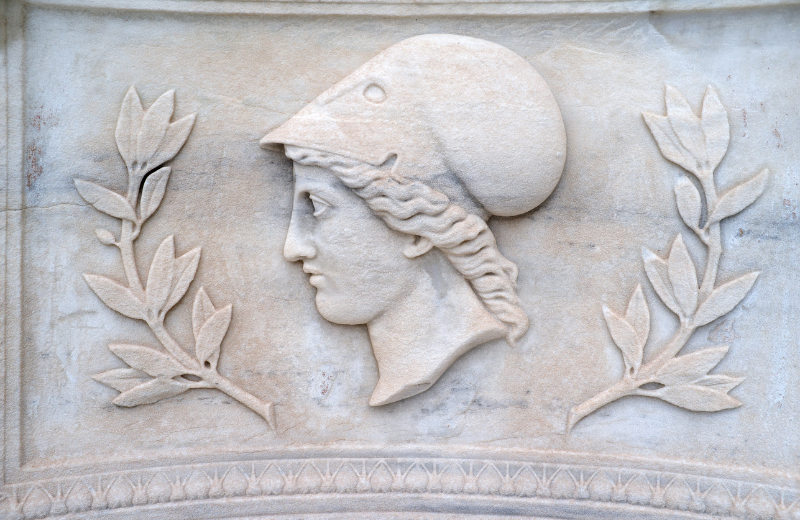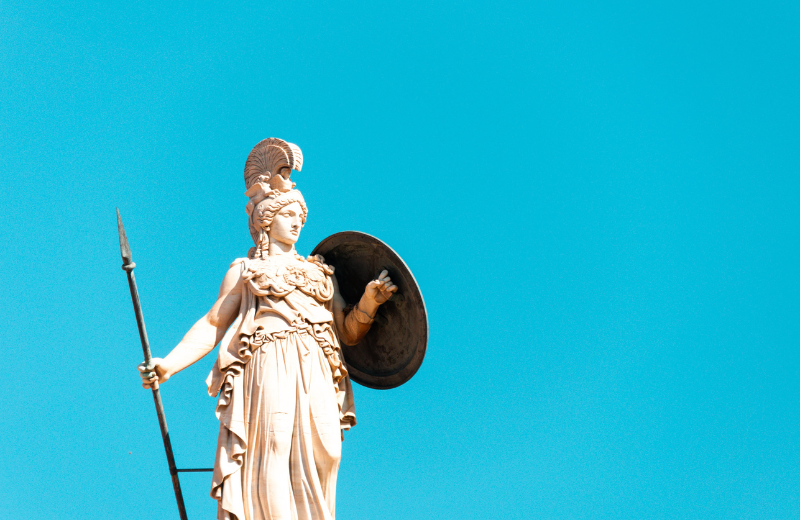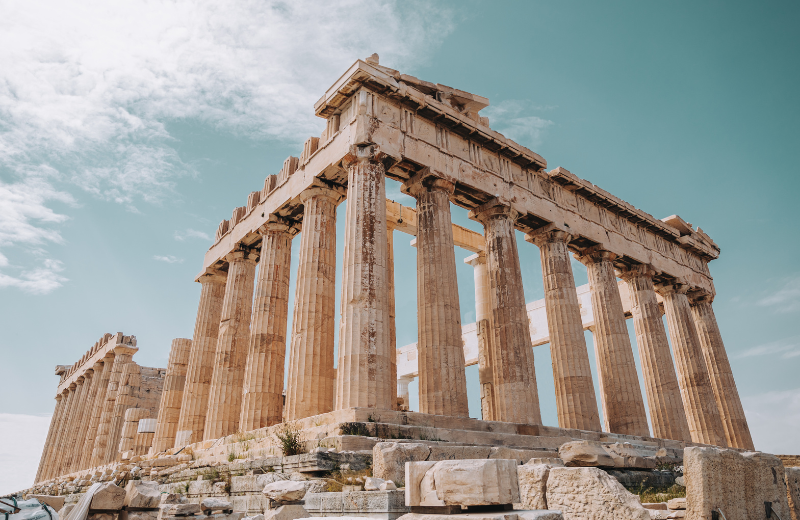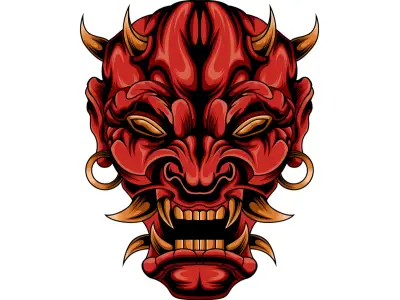One of the most intriguing figures in Greek mythology is Athena. As the goddess of wisdom, war, and craft, she is often featured in ancient tales and has connections with other powerful figures in Greek mythology. This blog post explores who Athena was, her powers, symbols, and some of the most famous myths associated with her.
Jump to:
- What was Athena the Goddess of?
- The Birth of Athena: A Unique Origin Story
- Athena’s Family Tree
- Athena’s Powers and Attributes
- Symbols Associated with Athena
- Famous Myths Involving Athena
- Athena’s Representation in Art and Culture
- Frequently Asked Questions about Athena in Greek Mythology
- Study Greek Mythology for £29
What was Athena the Goddess of?
Athena, also known as Pallas Athena, is one of the twelve Olympian deities and a central figure in Greek mythology. Worshipped as the goddess of wisdom, war, and craft, Athena was a powerful and influential figure. Her Roman name is Minerva, and she is often depicted as a warrior goddess wearing armour, a helmet, and a shield.
Recommended for you!
Best SellersThe Birth of Athena: A Unique Origin Story

Athena’s birth is one of the most remarkable tales in Greek mythology. She was born fully grown and armoured from the forehead of her father, Zeus, the king of the gods. This extraordinary event happens after Zeus swallows her pregnant mother, Metis, the goddess of wisdom, to prevent a prophecy that the child Metis bore would be more powerful than its father.
Athena’s Family Tree
Athena’s family tree is deeply rooted in the pantheon of Greek gods and goddesses. Her unique birth and relationships highlight her powerful position among the deities.
Key Figures in Athena’s Family Tree
- Zeus: The king of the gods, Zeus was the father of Athena. He swallowed her mother, Metis, to prevent a prophecy, and Athena was later born from his forehead, fully grown and armoured. Despite her unusual birth, she was often considered Zeus’s favourite child. She was granted significant powers and a great deal of respect from her father. Unlike many other gods and goddesses, Athena did not have a consort or children, focusing instead on her duties as a protector and guide for heroes and mortals alike.
- Metis: Athena’s mother, Metis, was the goddess of wisdom and craft. Her union with Zeus resulted in the birth of Athena, symbolising the blending of wisdom and power.
- Hera: As Zeus’s wife, Hera was technically Athena’s stepmother. Although their relationship wasn’t particularly highlighted, Hera’s status as queen of the gods placed her in Athena’s extended family.
- Poseidon: Athena’s uncle and often her rival, Poseidon competed with her for the patronage of Athens. Despite their conflicts, they were both important deities within the Greek pantheon.
- Hephaestus: The god of blacksmiths and craftsmen, Hephaestus had a complicated relationship with Athena. In some myths, he attempted to court her, but Athena, committed to her vow of chastity, rejected him.
Athena’s Powers and Attributes
Athena’s powers were vast and varied, befitting her status as a major deity. Let’s explore some of the key powers and attributes that define this goddess.

Goddess of Wisdom
Athena is best known as the goddess of wisdom. She was a symbol of intelligent warfare and strategic planning, rather than sheer brute force. Her wisdom extended to many areas, including philosophy, law, and the arts, making her a revered figure among scholars and craftsmen.
Goddess of War and Protector of Cities
While Athena was a warrior goddess, she represented the strategic and disciplined aspects of war rather than the chaotic and violent ones. She was often depicted as a protector of cities and civilisations, most notably the city of Athens, which was named in her honour.
Crafts and Weaving
Athena was also the goddess of crafts and weaving. She was known for her skill in creating intricate and beautiful works of art and clothing. This aspect of her character highlighted her role as a goddess who valued intelligence and skill.
Symbols Associated with Athena
Athena had several symbols that were closely associated with her and appeared frequently in art and literature.
The Owl
The owl, symbolising wisdom and knowledge, is perhaps Athena's most well-known symbol. The bird was often depicted alongside her in statues and paintings, reinforcing her role as the goddess of wisdom.
The Olive Tree
Another significant symbol of Athena is the olive tree. According to myth, Athena gifted the olive tree to the people of Athens, providing them with wood, oil, and food. This act won her the patronage of the city over Poseidon, who had offered a saltwater spring.
Armour and Aegis
Athena is often portrayed wearing a helmet and carrying a shield, symbolising her warrior aspect. The aegis, a protective cloak often depicted with the head of the Gorgon Medusa, was another important symbol associated with her.
Famous Myths Involving Athena
Athena’s involvement in various myths showcases her diverse roles and attributes. Here are a few key stories that highlight her importance in Greek mythology.
The Myth of Medusa
One of the most famous myths involving Athena is the story of Medusa. Medusa was once a beautiful maiden who was transformed into a Gorgon with snakes for hair by Athena. This transformation was a punishment for desecrating Athena’s temple with Poseidon. Medusa’s gaze turned anyone who looked at her into stone. Later, the hero Perseus, with Athena’s guidance, was able to behead Medusa and use her head as a powerful weapon.
The Contest for Athens
Another notable myth is the contest between Athena and Poseidon for the patronage of the city of Athens. Poseidon struck the ground with his trident, creating a saltwater spring, while Athena offered the olive tree. The citizens chose Athena’s gift, and the city was named after her.
Athena and Odysseus
In Homer’s epic, The Odyssey” Athena plays an important role in helping the hero Odysseus on his journey home. She provides guidance and support, helping him navigate various challenges and dangers. Athena’s wisdom and strategic thinking were instrumental in Odysseus’s successful return to Ithaca.
Athena’s Representation in Art and Culture

Athena has been a popular subject in art and culture for centuries. Statues, paintings, and literature have all depicted her in various forms, showcasing her importance in Greek mythology.
Statue of Athena Parthenos
One of the most famous representations of Athena is the statue of Athena Parthenos, created by the sculptor Phidias. This massive statue once stood in the Parthenon in Athens and depicted Athena in full armour, holding a shield and a small statue of Nike, the goddess of victory.
Athena in the Parthenon
The Parthenon, a temple on the Acropolis in Athens, was dedicated to Athena and housed the statue of Athena Parthenos. The temple itself celebrates Athena’s significance and the respect the Athenians had for her.
Modern Depictions
Athena continues to be a popular figure in modern literature, art, and even video games. Her image as a wise and powerful goddess resonates with audiences, and her stories continue to be told and retold.
Frequently Asked Questions about Athena in Greek Mythology
What God did Athena love?
Athena is unique among the Olympian gods in that she does not have any romantic relationships. Unlike many other gods and goddesses, she remained a virgin and devoted herself to wisdom, war, and craft. Her lack of romantic entanglements is one reason she is often referred to as the "virgin goddess."
What are Athena’s important powers?
Athena's important powers include her wisdom, strategic warfare skills, and proficiency in crafts such as weaving. She was also known for her ability to protect cities and provide guidance to heroes. Athena's powers extended to inspiring intelligence and innovation in various fields.
Did Zeus and Athena have a relationship?
While Zeus and Athena had a close relationship as father and daughter, there was no romantic involvement between them. Athena was highly regarded by Zeus and was often considered his favourite child due to her wisdom and loyalty.
Did Poseidon and Athena date?
Poseidon and Athena did not date. They were, in fact, rivals in several myths. One of the most famous stories involving their rivalry is the contest for Athens' patronage, in which Athena's gift of the olive tree won over Poseidon's saltwater spring.
Why did Athena curse Medusa?
Athena cursed Medusa as a punishment for desecrating her temple with Poseidon. According to the myth, Medusa was a beautiful maiden who was seduced by Poseidon in Athena's temple. In response, Athena transformed Medusa into a Gorgon with snakes for hair, whose gaze could turn anyone to stone.
What is Athena’s weakness?
Athena's primary weakness was her inability to tolerate disrespect or disobedience, especially when it came to her temple and her principles. This is evident in her harsh punishment of Medusa and her support for heroes who honoured the gods.
Why is Athena so special?
Athena is special because she embodies a unique combination of qualities: wisdom, strategic warfare, and crafts. She represents intelligent and disciplined aspects of life, making her a revered and respected deity. Her virginity and focus on intellectual pursuits also set her apart from many other gods and goddesses.
Who was Athena’s biggest enemy?
One of Athena's notable enemies was Ares, the god of war. While Athena represented strategic and just warfare, Ares embodied chaotic and violent conflict. Their differing approaches to war often put them at odds with each other.
Did Athena have any children?
Athena did not have any children. She was known as the "virgin goddess" and remained chaste throughout her life. Instead of focusing on family, Athena dedicated herself to her divine duties and the guidance of mortals.
What is Athena’s sacred animal?
Athena's sacred animal is the owl, which symbolises wisdom and knowledge. The owl was often depicted alongside her in statues and artworks, reinforcing her association with intelligence and insight.
What is Athena’s sacred colour?
Athena’s sacred colour is often considered to be olive green, reflecting her gift of the olive tree to the city of Athens. The colour also symbolises peace and prosperity, qualities associated with Athena.
What is Athena’s sacred number?
Athena’s sacred number is not explicitly mentioned in myths, but the number three is often associated with her due to her role in the triad of virgin goddesses, along with Artemis and Hestia.
What is Athena’s sacred plant?
The olive tree is Athena’s sacred plant. According to mythology, she gifted the olive tree to the Athenians, providing them with wood, oil, and food, which became essential to their economy and daily life.
What is Athena’s nickname?
Athena is often referred to as "Pallas Athena." The nickname "Pallas" is associated with her childhood friend whom she accidentally killed. In honour of her friend, Athena took on the name "Pallas."
What is the curse of Athena?
The curse of Athena refers to Medusa's transformation into a Gorgon. This curse was a punishment for Medusa’s desecration of Athena’s temple, and it involved turning Medusa's hair into snakes and making her gaze turn people to stone.
Recommended for you!
Best SellersStudy Greek Mythology for £29
If you’ve found this exploration of Athena, the goddess of wisdom and war, fascinating, why not take a course on Greek mythology? Centre of Excellence offers a fascinating Greek Mythology Diploma Course that journeys through the myths, gods, and heroes of ancient Greece. For a limited time, you can enrol in this course for a discounted price of £29.












